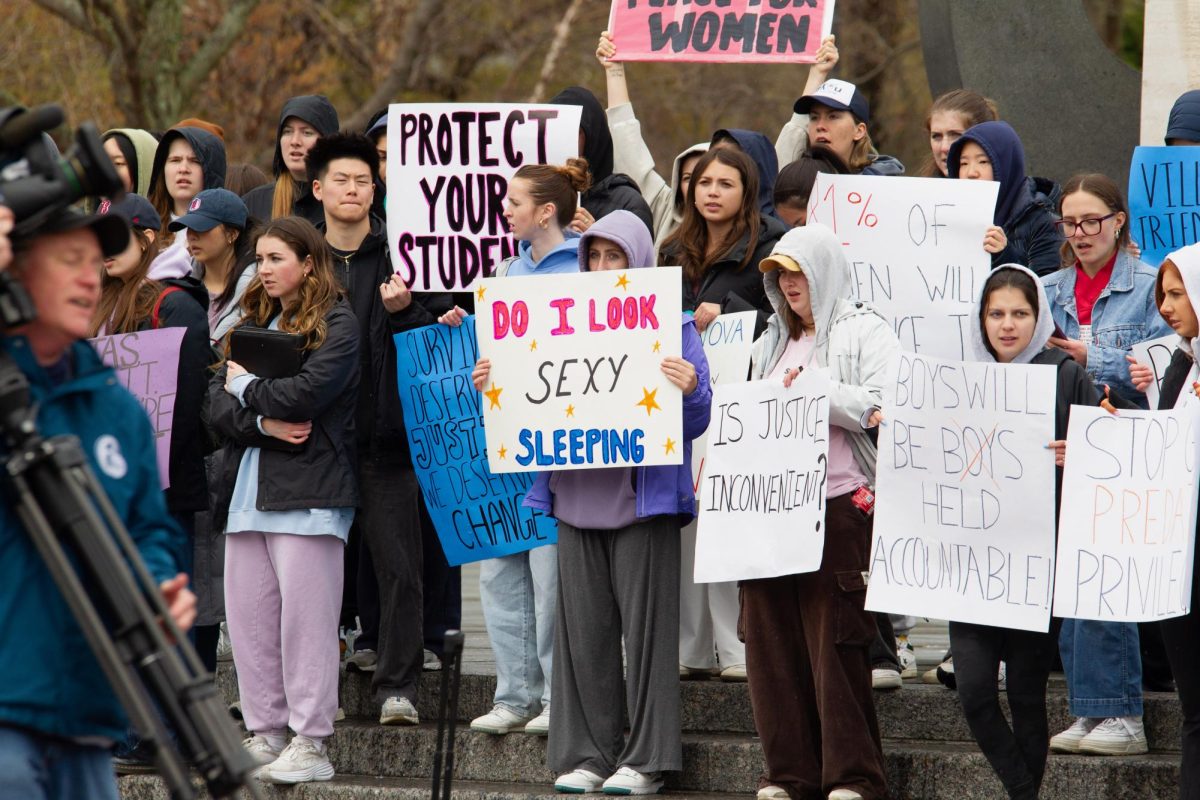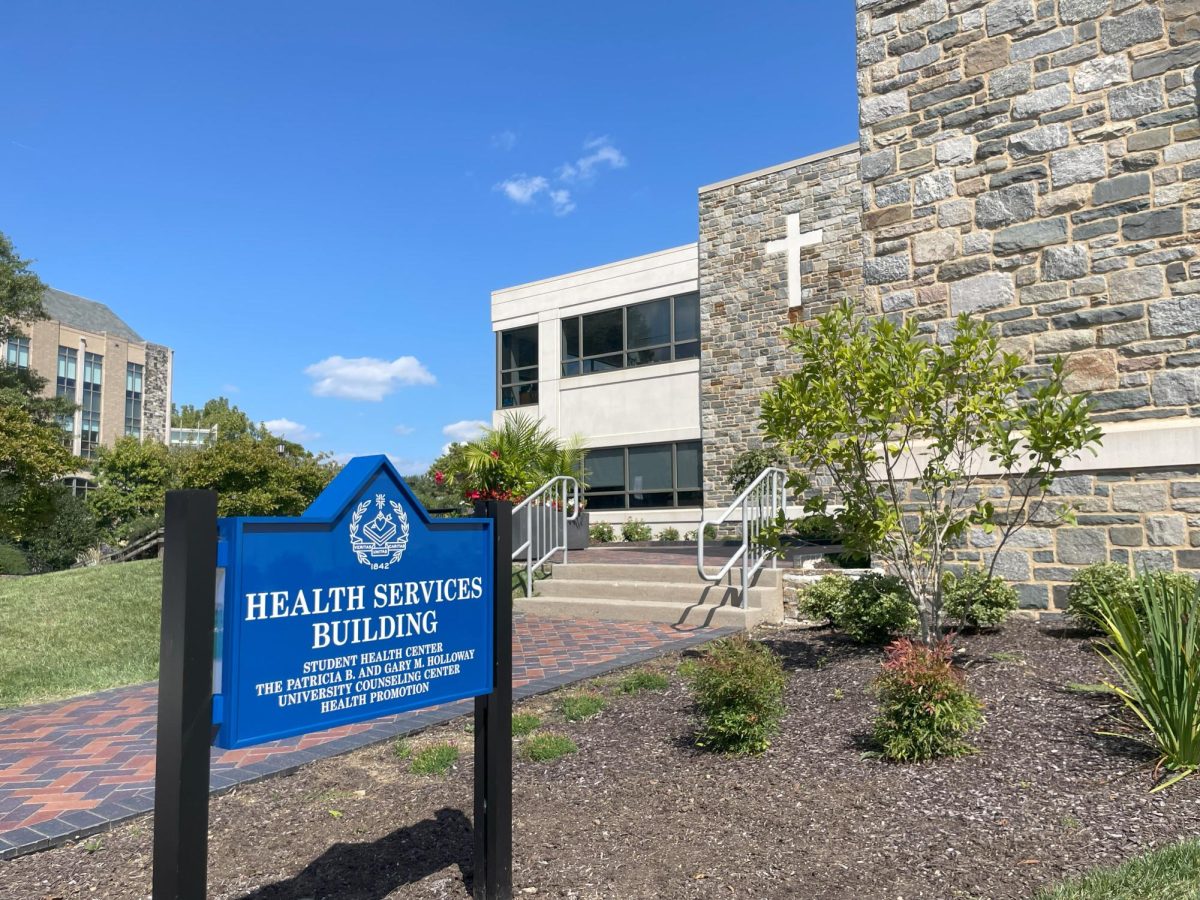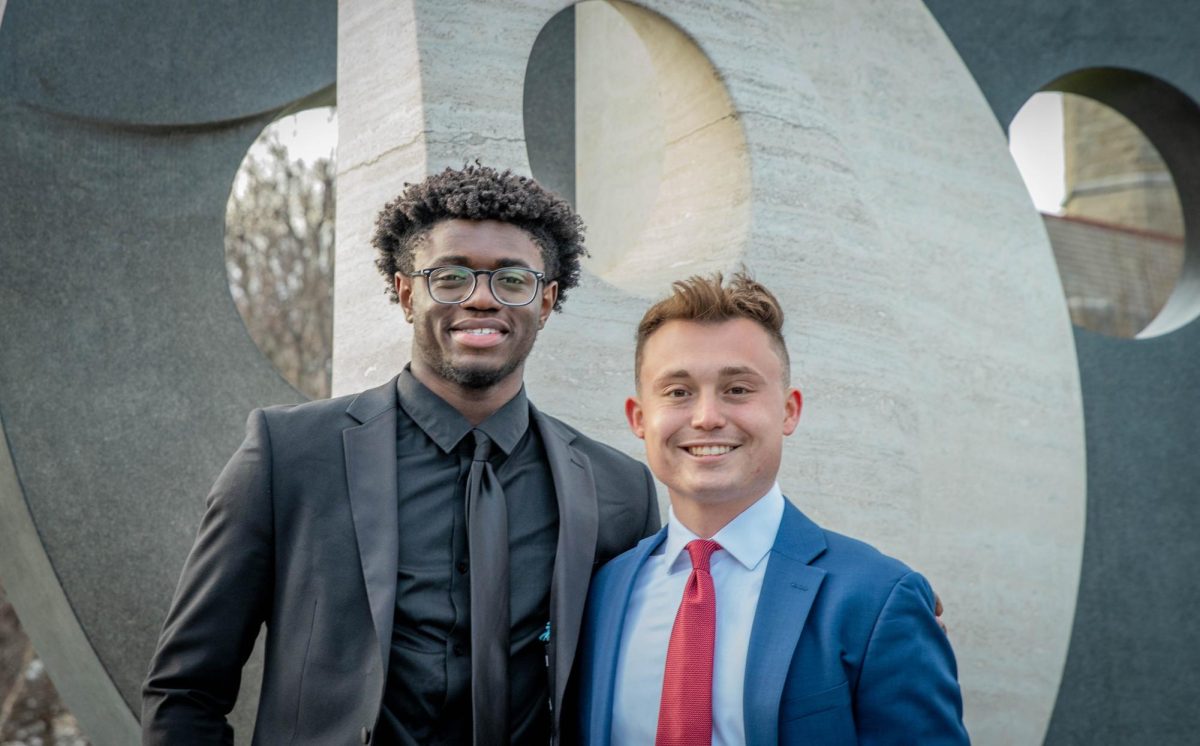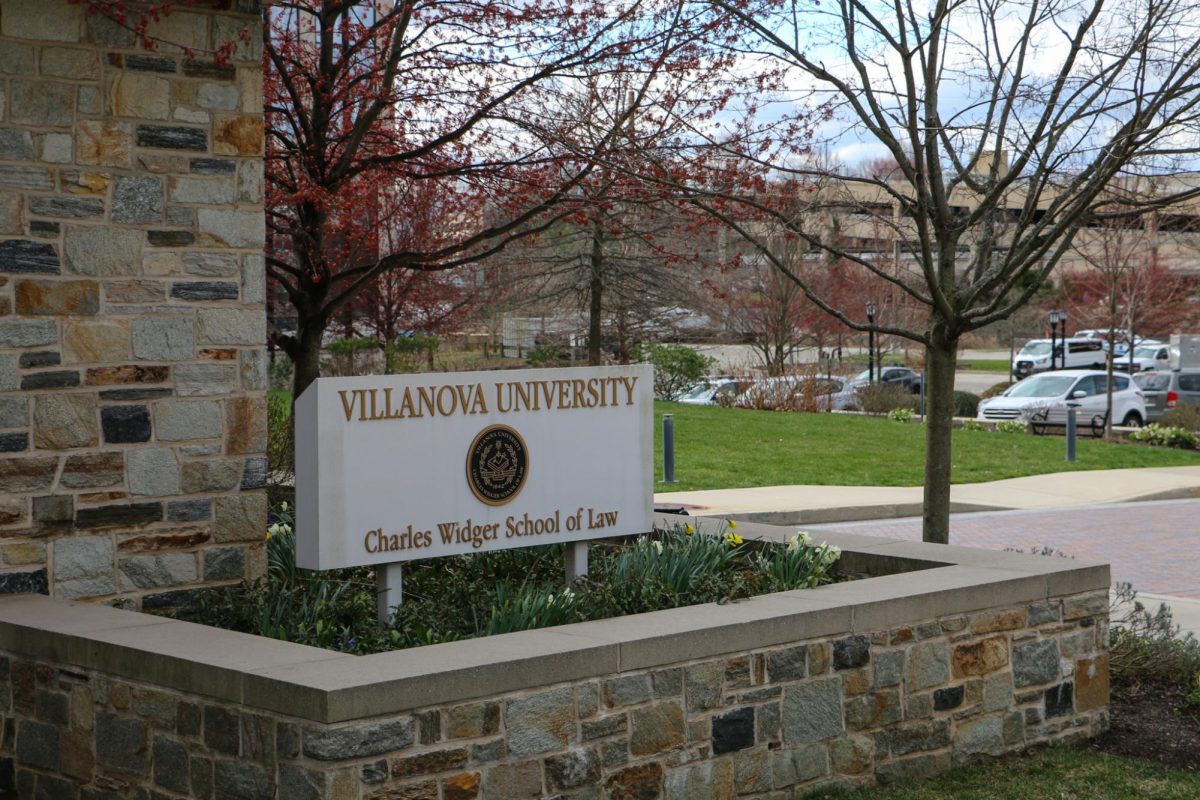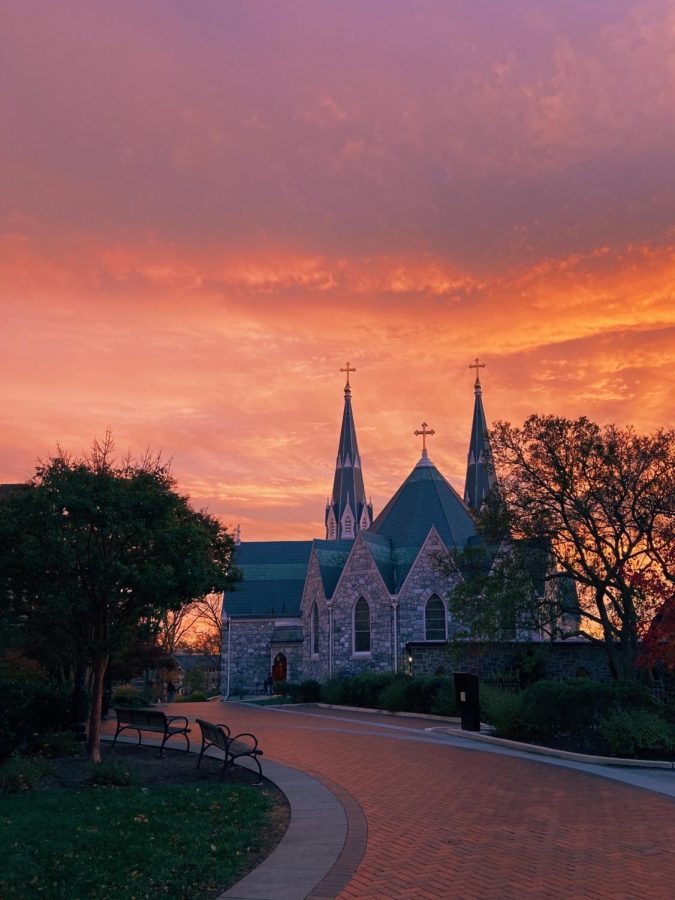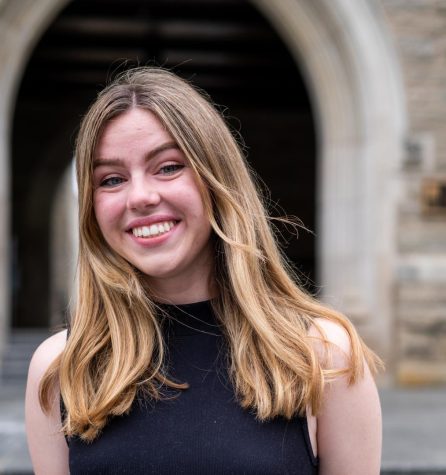The Center for Peace and Justice presented the 2023 Adela Dwyer-St. Thomas of Villanova Peace Award to Amazon Labor Union Founder and President Chris Smalls on Oct. 23.
The Adela Dwyer-St. Thomas of Villanova Peace Award “recognizes an individual or group for outstanding contributions to the meaning and conditions of justice and peace in human communities.” Smalls was recognized as this year’s recipient for his efforts establishing the first Amazon labor union at the Amazon location on Staten Island, where he previously served as a warehouse supervisor.
Dr. Katherine Getek Soltis, Director of the Center for Peace and Justice Education, kicked off the event.
“The Peace Award is one of our most special events during the year, and no matter when we celebrate it, in the backdrop, is a world marred by conflict, degradation and fear,” she said. “We come back to this event year after year because we so desperately need it.”
Reverend Naomi Washington-Leapheart introduced Smalls to the audience, describing Smalls as, above all else, a “stone catcher,” or “the one who will put himself in between the powerful and the accused, the counted-out, the worthless, the left behind.”
Smalls was presented the Adela Dwyer-St. Thomas of Villanova Peace Award by Father Kevin DePrinzio, O.S.A, Ph.D., joining the ranks of former-awardees. Former-awardees have included the Indigenous Environmental Network, a group that defends Indigenous based environmental protection infrastructures; Bryan Stevenson, founder of the Equal Justice Initiative and author of Just Mercy and Noam Chomsky, a prominent political dissident and strong advocate for justice.
After thanking Villanova for the award, Smalls encouraged people to turn to their neighbors to their left and right and say “I’ve got your back.” After a few iterations, Smalls asked, “Are you feeling that energy?
“That’s people’s power right there,” he said. “That’s something that can’t be taught, but it’s here…it’s with us.
“Three years ago, I was not an organizer…I was just going to work,” he said, explaining the story of how he got involved with organizing and, ultimately, founding the Amazon Labor Union (ALU).
After beginning as a minimum wage worker, Smalls worked his way up to supervisor. As supervisor, Smalls was involved with the opening of three major warehouses in New York, New Jersey and Connecticut, and responsible for supervising thousands of employees. Despite his success, Smalls applied for a role as a salaried manager more than 50 times. He was denied every time.
“The system that Amazon designed wasn’t meant for me,” he said. “As a Black and Brown worker at Amazon, you don’t have the same opportunity to move up as you think you do.”
During the pandemic, Smalls inquired as to why his Amazon warehouse had no PPE or cleaning supplies, despite sitting shoulder-to-shoulder every day. After failing to receive sufficient answers, Smalls reached out to the media. When he heard no response from the media, he decided to hold a walkout.
“It worked so good, I got fired two hours later,” Smalls said, speaking to the success of the walkout.
He explained that he was whistleblowing on a company that employs more than 1.6 million people globally.
“People had died working for Amazon during the pandemic because they had contracted COVID-19, which could have been prevented,” he said. “Because the company chose to put profits over people.”
Leveraging his success and recent media attention, Smalls created the Congress for Essential Workers, which protested outside Jeff Bezos’s mansions across the United States. He and the Congress were in the process of protesting when they heard about the attempts to unionize at an Amazon Warehouse in Bessemer, Alabama. Despite its failure to pass a vote, Smalls was inspired to start the Amazon Labor Union at the Staten Island warehouse, where he worked.
Dr. Rick Eckstein, Professor and Sociology Program Director, is a former labor organizer of graduate students in the State University of New York (SUNY) system.
Eckstein explained the importance of unions.
“In a capitalist economy, the only thing that workers have is their labor,” Eckstein said. “If they bargain individually, they can be eliminated because their labor is replaceable. But if they bind together into groups, then it’s much harder for employers to dismiss or punish them. That gives workers a lot more leverage in that relationship.”
Smalls spent more than 300 days outside the warehouse. He was set up with a table and chairs and hosted fun events like barbecues and bonfires to foster community.
“I knew that was my only way of connecting with workers, meeting them where they at, having not one but several conversations with them,” he said. “I had people walk past me for two or three months, who wouldn’t even take a pamphlet from me, but being available for when they were finally ready to have the conversation, was the best thing.”
Smalls’ hard work and persistence paid off, as the Amazon Labor Union passed a vote on April 4, 2021, creating Amazon’s first union.
However, Smalls warned the audience to not “let this victory distract [them].
“This is just the beginning,” he said. “My journey is resetting. We now need a contract for these workers. Amazon, it’s been over a year.”
Eckstein explained that although companies might have officially recognized unions, like Amazon and the ALU, current United States labor laws are not strong enough to ensure that the company bargains with its union.
“Even though [the companies] are legally required to bargain in good faith, there is no penalty for not doing so, or if there is, it takes 10, 12, 14 years for any penalty,” Eckstein said.
Monetary penalties are also not sufficient incentives, representing what is “chump change” for billion-dollar companies like Amazon.
Despite the uphill battle, Smalls remains optimistic.
“It may seem overwhelming, but I can tell you this from defeating Amazon: no amount of money in the world can amount to the power of people when we come together,” Smalls said.

